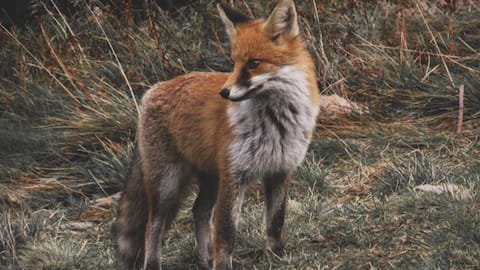Not dogs but foxes were early human's first companions: Study
What's the story
Recent research suggests that early humans may have initially formed bonds with foxes rather than dogs. This theory is based on discoveries from an ancient burial site in Argentina, which contained not only human remains but also those of a fox. The findings indicate that this canid species might have once rivaled dogs for human companionship.
Archeological discovery
Ancient burial site reveals human-fox relationship
The burial site, located in Patagonia and dating back approximately 1,500 years, revealed a close relationship between early humans and the now-extinct large fox species Dusicyon avus. The nearly intact D. avus skeleton was first discovered in 1991 in Canada's Seca, a location in northern Patagonia. Interestingly, the absence of cut marks on the bones suggests that this fox was not used for food but may have been a domesticated companion.
Dietary analysis
Extinct fox species shared diet with early humans
Dr. Ophelie Lebrasseur from the University of Oxford's School of Archeology confirmed through an extensive analysis of ancient DNA and radiocarbon dating techniques that the fox shared a similar diet to humans. This discovery suggests the possibility of domestication. The species, which existed from around 2.6 million to 11,700 years ago, had a carnivorous diet but the fox found at the burial site had a less carnivorous diet than expected, more akin to human diets.
Global trends
Foxes as pets: Evidence from Europe and Asia
The dietary similarity between foxes and humans suggests that the community either fed the fox or it scavenged on leftover food from human meals. This theory aligns with evidence from other fox burials in Europe and Asia, indicating that foxes were also kept as pets in these regions. The Dusicyon avus species became extinct about 500 years ago, but its relationship with early humans provides intriguing insights into our ancestors' interactions with wildlife.
Extinction theory
Insights into the extinction of Dusicyon avus
The study also sheds light on the extinction of the Dusicyon avus. One theory suggests that they interbred with dogs brought to South America by European colonizers, leading to their decline. However, DNA analysis indicates that crossbreeding between domestic dogs and Dusicyon avus would not have resulted in fertile offspring. It's more likely that dogs contributed to the foxes' extinction by competing for food or spreading diseases.
